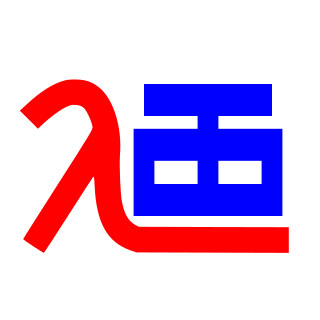 W
WAgda is a dependently typed functional programming language originally developed by Ulf Norell at Chalmers University of Technology with implementation described in his PhD thesis. The original Agda system was developed at Chalmers by Catarina Coquand in 1999. The current version, originally known as Agda 2, is a full rewrite, which should be considered a new language that shares a name and tradition.
 W
WATS is a programming language designed to unify programming with formal specification. ATS has support for combining theorem proving with practical programming through the use of advanced type systems. A past version of The Computer Language Benchmarks Game has demonstrated that the performance of ATS is comparable to that of the C and C++ programming languages. By using theorem proving and strict type checking, the compiler can detect and prove that its implemented functions are not susceptible to bugs such as division by zero, memory leaks, buffer overflow, and other forms of memory corruption by verifying pointer arithmetic and reference counting before the program compiles. Additionally, by using the integrated theorem-proving system of ATS (ATS/LF), the programmer may make use of static constructs that are intertwined with the operative code to prove that a function attains its specification.
 W
WCoq is an interactive theorem prover first released in 1989. It allows for the expression of mathematical assertions, mechanically checks proofs of these assertions, helps to find formal proofs, and extracts a certified program from the constructive proof of its formal specification. Coq works within the theory of the calculus of inductive constructions, a derivative of the calculus of constructions. Coq is not an automated theorem prover but includes automatic theorem proving tactics (procedures) and various decision procedures.
 W
WF* is a functional programming language inspired by ML and aimed at program verification. Its type system includes dependent types, monadic effects, and refinement types. This allows expressing precise specifications for programs, including functional correctness and security properties. The F* type-checker aims to prove that programs meet their specifications using a combination of SMT solving and manual proofs. Programs written in F* can be translated to OCaml, F#, and C for execution. Previous versions of F* could also be translated to JavaScript.
 W
WMatita is an experimental proof assistant under development at the Computer Science Department of the University of Bologna. It is a tool aiding the development of formal proofs by man-machine collaboration, providing a programming environment where formal specifications, executable algorithms and automatically verifiable correctness certificates naturally coexist.
 W
WThe Mizar system consists of a formal language for writing mathematical definitions and proofs, a proof assistant, which is able to mechanically check proofs written in this language, and a library of formalized mathematics, which can be used in the proof of new theorems. The system is maintained and developed by the Mizar Project, formerly under the direction of its founder Andrzej Trybulec.
 W
WThe Prototype Verification System (PVS) is a specification language integrated with support tools and an automated theorem prover, developed at the Computer Science Laboratory of SRI International in Menlo Park, California.